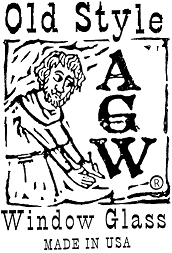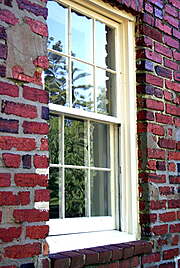
About Old Style Window Glass
About Old Style Window Glass
- Old Style Window Glass is of uniform thickness and comes to you square cut with straight edges, either in stock sheets or cut to your specs.
- The standard thickness of our glass is 1/8", but we can produce thinner or thicker sheets to order - 3/32" to 3/8" (at additional cost)
- Our standard sheet sizes are 30" x 40", and 36" x 48". We can create limited runs of up to 39" x 61" by special order (at additional cost)
- All types of Old Style Window Glass can be tempered for safety glazing
- Type C and Light C can be incorporated into insulated glass units
- All types meet the ASTM C-1036 standard for the physical properties of annealed float glass
- We ship stock sheets and large orders by freight, and we will also custom cut your order so that it can be packaged and sent by courier to reduce shipping costs. > Learn more about shipping <
Old Style Window Glass - Available in Four Types

Subtle, gentle waves and little pitting.
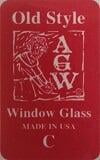
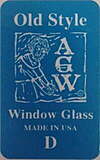
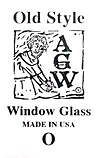
Medium waves, lots of dimples and pitting, and the most exaggerated reflective distortion.
Uses include: Architectural applications and cabinetry.
Note: Too much distortion for window restoration.
Pictures and Videos Coming Soon!
Please check out the gallery and the quote page to see pictures of each type of our glass.
We are working on getting even better pictures that show off our glass!
Terminology
To describe the characteristics of Old Style Window Glass, we use the following terms:
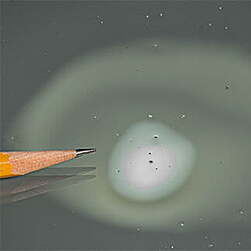
Pitting
If you look carefully at old glass, there are tiny pits created during the manufacturing process. The amount of pitting varies in the types Old Style Window Glass, with Type C having the most and Light C having the least.
Reflective Distortion
The distortion seen in old glass is sometimes optical, when you look straight through the glass, but Old Style Window Glass achieves the look of old glass in the way reflections appear to be wavy, and light dances when moving pass the glass. Just put a piece of new float glass next to Old Style Window Glass, and you will instantly see the difference. But, if you look straight through it, distortion is minimal.
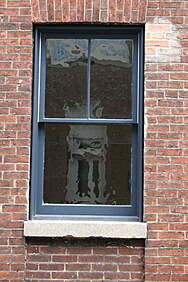
Waves (or Waviness)
All types of our glass have different degrees of waviness, that can be seen when looking at the reflection of a straight line, such as a fence or telephone pole. The shorter the wave, the more "squiggly" it will appear. Longer waves will cause the line to appear to bulge.

